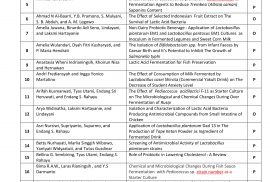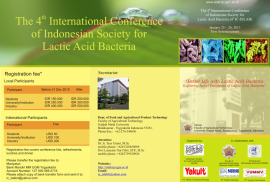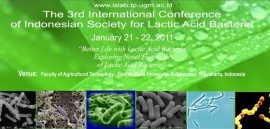Dear all participants,
The committee of 4th IC-ISLAB has reviewed all submitted abstracts. We would announce the enlisted abstracts. Please download the attachment file.
The official language for oral presentation is in English. The oral presentation, slide, and handouts, should also be written in English. But for several circumstances, please inform us if you intended to give oral presentation in Bahasa Indonesia.
For poster participant, we suggest that the poster be written in English. The poster should be printed in A-1 size paper. Please make also some copies of your poster in A-4 size paper for other participants. Three best posters will be awarded.













